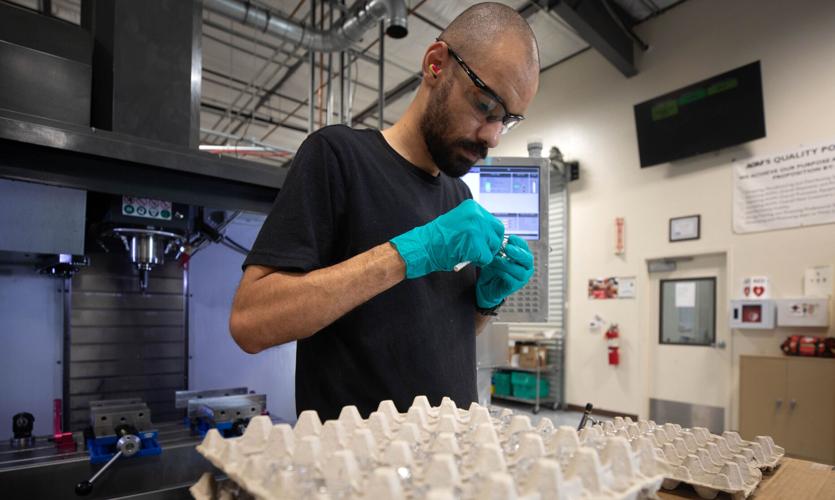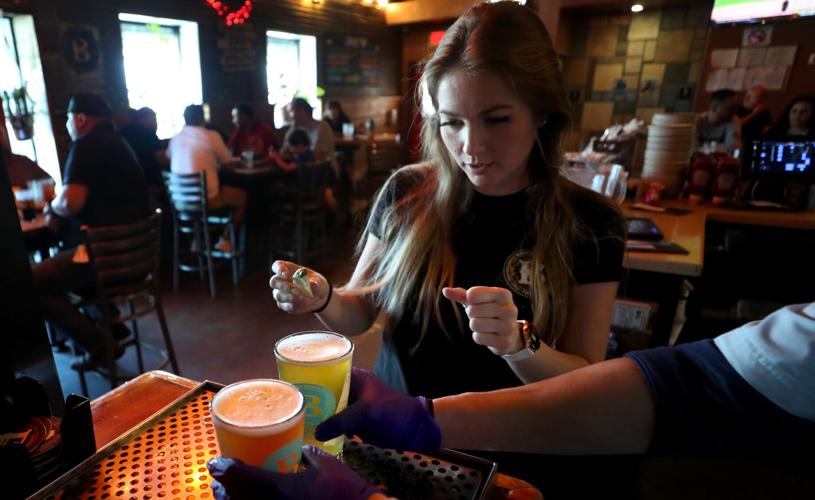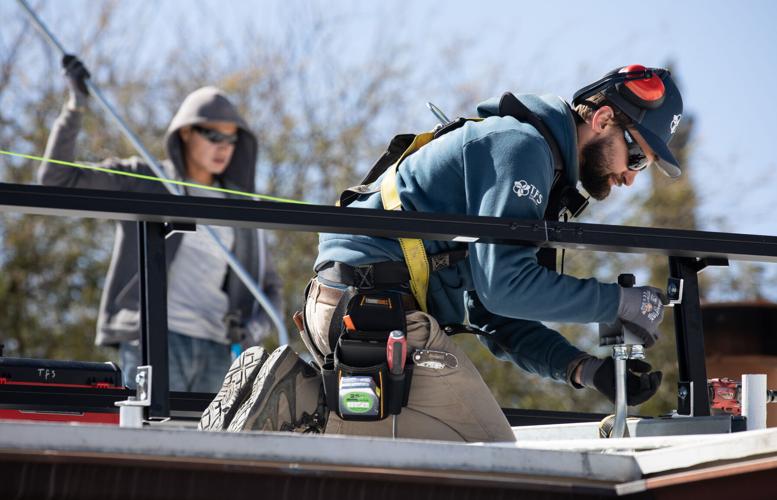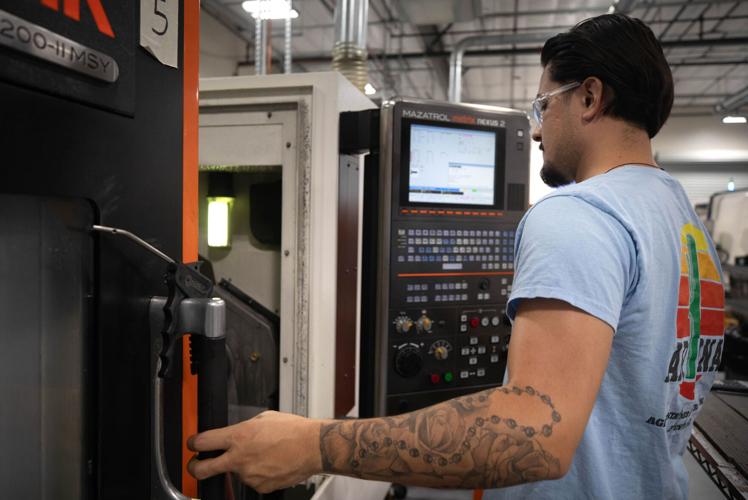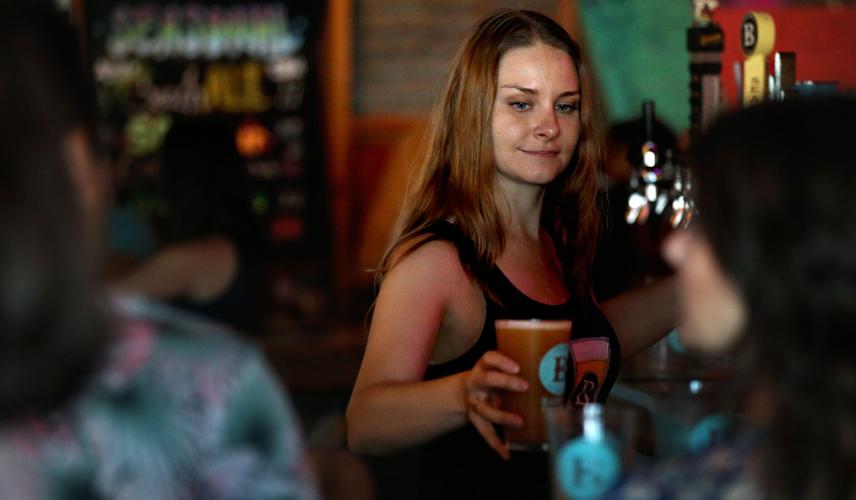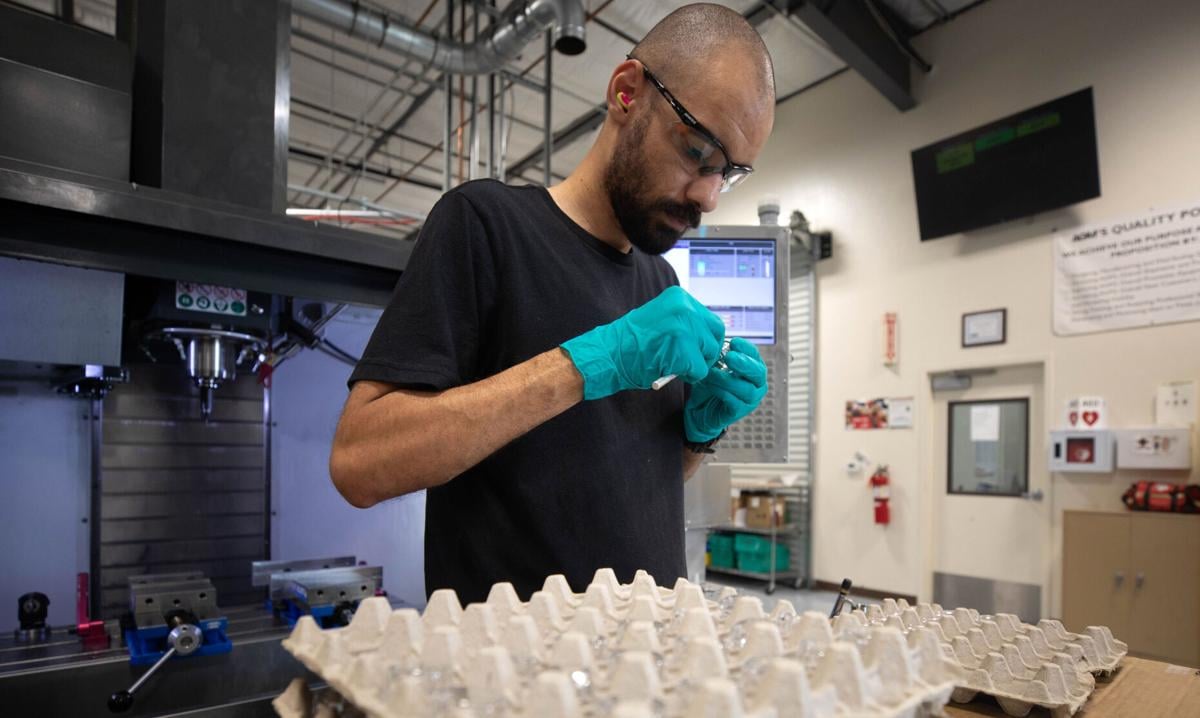Whether it be a shoe collection, cars, animals or land —ownership has been a principal value of the United States since its inception.
Mergers and acquisitions occur constantly in business. When owners want to step away, preserving the legacy of what they built and ensuring its stability is often much more difficult than anyone could expect.
While succession through family members or selling to another entity is a normal progression for most businesses, nonprofit organization Project Equity says that those opportunities to exit the business are fleeting.
Founded in 2014, the nonprofit aims to help business owners find exit strategies within employee-ownership models. The organization also conducts regional data studies, which have shown alarming figures for the United States’ small business economy.
Over half of all privately held businesses are owned by individuals at least 55 years old, the generation known as baby boomers, employing an estimated one out of every five people in the private sector.
Over the next decade, Project Equity estimates six out of every 10 business owners plan to sell. This is what they describe as the “Silver Tsunami,” a dramatic shift in the small business landscape for every American community.
“When we started, we were really focused on what we called the Silver Tsunami,” said director of regional development Sarah McBroom. “The demographic trends in the U.S. showed that about half of businesses in any county, including Tucson, are owned by baby boomers nearing retirement.”
Last year, the organization partnered with the City of Tucson to work to preserve the city’s small business vitality, providing support to companies that want to explore and execute employee ownership.
“As more business owners face retirement or struggle to recover from the pandemic, the community becomes vulnerable to losing the local favorites that make up its culture and identity,” said Evan Edwards, CEO at Project Equity, in a news release. “Through this effort, we can keep these businesses in the community for future generations, preserving jobs and a strong local economy.”
As these owners age, more companies have opted to go down the employee-ownership route. There are a few main reasons for this, McBroom says.
“Good luck to the owners trying to sell their business (outright), it is hard and only about one in five actually succeed,” she said. “(Employee-ownership) is really attractive to business owners because there’s so much more control over the timing and pacing of their exit. There’s also the owner’s identity wrapped up into the business, so this can be a way to protect their legacy and what the business looks like moving forward.”
There are three main forms of employee-ownership models employed in the U.S.: employee stock ownership plans (ESOP), worker-owned cooperatives and employee ownership trusts (EOT).
Project Equity says an ESOP is best suited for companies with at least 40 employees who earn $1 million in earnings before interest, depreciation and amortization. The setup costs for an ESOP are high but tax deferrals for the selling party make this an enticing exit strategy.
A worker-owned cooperative is a company owned and controlled by the people who work there. Co-ops have a board of directors that is comprised of elected employees. Net profits are shared with all co-owners based on a predesigned formula that fits the individual company.
EOT’s are trusts that hold some-or-all of the company’s shares on behalf of the employees. EOTs have been the common path towards employee-ownership in the United Kingdom for decades, however they are fairly rare in the United States.
On the employee front, those working under employee ownership models are said to have a 33% higher median income, 92% higher household net worth and 53% longer job tenure, according to Project Equity’s website.
During the COVID-19 pandemic, an October 2020 study by Rutgers University and the Employee Ownership Foundation found that majority employee-owned companies with ESOPs were outperforming non-employee owned companies in the areas of job retention, pay, benefits and workplace health safety. The study revealed that ESOPs had been more proactive about ensuring the safety of employees during the pandemic and were generally more optimistic that they would return to business as usual.

Bartender Helena Pleskun serves up a draft for a customer at the Barrio Brewing, the state’s first 100% employee-owned brewery.
A number of Tucson businesses have adopted employee ownership models in an effort to preserve their legacies, share the wealth with employees and position themselves for future success. Here’s a look at three of them.
AGM Container Controls
In 1988, owners Roger and Joyce Stewart began planning their exit strategy away from AGM Container Controls by setting up an ESOP for its employees.
Originally founded under the name Arizona Gear and Manufacturing in the 1950s by Harrison Browning, AGM Container Controls would soon prove to be a pioneer for its time for the invention of “breather valves.”
Breather valves are one-way valves that allow little spurts of air in-or-out of missile containers. AGM president and CEO Howard Stewart estimates these breather valves have saved the government “billions of dollars in storage and transports costs.”
In 1970, his father, Roger Stewart, was named head of AGM Cargo Ties after he convinced Harrison Browning to purchase the line a few years prior. Cargo-tie manufacturing never became a large part of the company, so the company’s name was changed to AGM Container Controls to better reflect its business.
All was good as AGM grew in revenue and size each of its first 20 years.
The move to become an ESOP was for two reasons, says their son: first, as a way to plan an exit strategy for retirement. Secondly, the structure of an ESOP proved to be beneficial to their tax payments. Naturally this was the best option to not only save money, but to make it, too.
After Roger stepped down from his role as CEO in 1990, Joyce took the helm. Around that time, a huge downturn in the country’s defense budget began under President George H. W. Bush and continued through the Clinton administration.
Because of this, AGM’s evaluation in 1991 was cut by a third by 1994, forcing the company to layoff approximately 30% of its workforce. According to Stewart, these were the first-and-only layoffs in the company’s history.
Beginning in 2000, Howard took over the company as CEO. Despite the turbulence the 1990s brought, AGM still stands today.
Currently, the ESOP holds 34% of the company’s equity and has grown 25 times its size over the course of 28 years. Now, Stewart says, AGM has begun developing millionaires due to their pension plans for employees who have been with the company long-term.

Jesus Gonzalez, machinist at AGM Container Controls opens the door to the Mazatrol Matrix Nexus 2.
Ron Corbin is a Tucson native and has been with AGM for 43 years, longer than the ESOP has even been in place.
When Corbin was a senior at Rincon High School, he was approached by his machine shop teacher about a potential job at AGM.
“I was a busboy at a restaurant at the time and (my teacher came to me) roughly two weeks before we graduated. (I told him I had a job) and he said, ‘Ron, you’ve got the skills, you need to go talk to them,’” Corbin said. “I graduated Rincon High School in 1980 on a Thursday and went to work for them on a Monday. My teacher recommending me is still to this day something I’m very proud of.”
He was first hired on as a machinist at only 17 years old. At 61, he is the company’s operations manager, overseeing all day-to-day tasks on company grounds.
When the ESOP was first made available to AGM employees, it started at out roughly $10 per share, Corbin says. By 2022, he says that stock price has gone to $188 per share.
Corbin has seen generations of AGM employees come-and-go. The benefits he’s received is something that he doesn’t take for granted.
“It’s a great way in my opinion to share the wealth of the company,” he said. “Three weeks ago, I met with my financial advisor … she basically said, ‘Ron, you can retire whenever you want to and it’s just up to you.’ Fortunately, with AGM I’m in a good place. I think there are several employees here who can say the same.”
Getting to that point wasn’t easy, Stewart said.
A combination of quarterly reports, multi-hour meetings, stock evaluations and improvements to benefits options helped incentivize his employees to become true employee-owners. While simple, Stewart said, these small changes proved to be crucial.
Technicians For Sustainability
Founded in 2003, Technicians for Sustainability is a Tucson-based, locally-owned-and-operated residential and commercial solar company.
When founder Jean Francois Camson decided to move back to his home country of France in 2005, it didn’t take long for TFS executives to begin thinking about employee-ownership, says Director of People and Culture Nicole Koch.
“Our first non-owner employee was hired in 2006 and still works with us today all these years later,” she said. “Working side-by-side with those folks, sharing the whole experience of being a business owner and that entrepreneurial experience with some of our key employees really had us, at least by 2009, trying to figure out how we could become employee-owned.”
In 2011, TFS joined with four other U.S.-based solar companies and founded Amicus Solar Cooperative, which handled bulk purchasing and fought for better pricing in the marketplace.
“Up until the last few years, Arizona didn’t really have a cooperative model that was designed for employee-ownership,” said Koch. “If you wanted to be a functional employee-owned cooperative in Arizona you really had to go elsewhere, as we did and incorporate in Colorado, then come back to do business.”
In 2015 and 2016, executives began building their own ownership model, later transitioning TFS to an employee-owned co-op on Jan. 3, 2017, with 14 employee-owners.

Caleb Wheeler of Technicians for Sustainability, right, installs a junction box while fellow technician Christian Corella bends electrical conduit during solar panel installation at a home near South Prudence and East Escalante roads in Tucson on Feb. 16.
For an employee to become eligible to join the cooperative, they must first work at the company for a calendar year. There is then a candidacy process, where six classes are offered over a six-month period that cover topics such as financial literacy, the basics of the business and of the employee-ownership model, among others.
After the candidacy process is finished, it’s left to a vote of the other employee-owners as well as their board of directors. If accepted, the final requirement is to purchase a share of the company, with an initial investment of $10,000 per share.
“We were really looking for a deeper, full-business ownership experience… how do you share the rewards and risks, the rights and responsibilities that is employee-ownership, that is entrepreneurship with employees?” Koch said. “For us, the cooperative model allowed for that a little better.”
“We liked that shoulder-to-shoulder approach, we also like the more direct engagement a cooperative model offered because it really gives some of that big-picture governance and control to the very people who are working in the company,” she said.
As of August, TFS employs 72 individuals, 29 of whom are employee-owners.

Server Danielle Villa gets a drink order for a table while working at employee-owned Barrio Brewing in Tucson on Thursday.
Barrio Brewing
Barrio Brewing Company is a brand recognized by many, but Arizona’s oldest brewery is known by few as the state’s first 100% employee-owned brewery.
Founded in 1991, Gentle Ben’s Brewing quickly became one of the most popular breweries in the city.
By the late-2000’s expansion was the mindset, as their brewing capabilities exceeded the space of the East University Boulevard brewpub.
In 2007, Barrio Brewing Company opened its current location as a production facility for Gentle Ben’s, 800 E. 16th St.
In 2016, founding owners Dennis and Tauna Arnold began their exit strategy towards retirement by first selling Gentle Ben’s to their general manager at the time, Richard Fifer. He now heads Uniconcepts, the Tucson-based hospitality group also behind Bacio Italiano and the newly opened Agave House.
“(The Arnold’s) have three kids but they all have other things they wanted, so that succession wasn’t something they were looking to do,” said Jaime Dickman, chief operating officer of Barrio. “The Arnold’s were very cognizant of the fact that the only reason they were so successful over the years was because of the employees who helped build the business to what it is, as well as the community that supported them over the years.”
When the time came to leave Barrio Brewing behind, the Arnold’s opted to move the company into an ESOP in 2020, making it the first 100% employee-owned brewery in the state.
“They knew the employees would be taken care of through the ESOP, but they wanted to have a charitable foundation put together as well, so that they could continue to give back to the community,” Dickman said.
The transition to the ESOP structure took roughly 18 months, about half longer than normal transactions, says Dickman. This was in large part due to the Barrio Brewing Foundation Fund, a charitable organization set up by the Arnold’s as a way to thank the community.
No capital or assets were required from the employees in the transaction. Instead, an evaluation of the company was set by a third-party entity. Barrio and the Arnold’s then set up a loan structure where the brewery pays its former owners quarterly, based on a percentage of revenue.
“(The Arnold’s) wanted to make sure that it stayed Barrio. When you sell to someone out of state you don’t know what they’ll do with the business,” Dickman said. “They knew the employees wanted to keep that same legacy, so they knew they had put the business in good hands to continue to thrive.”
When the ESOP opened, Barrio had 30 employees eligible as participants, eight of whom were already 100% vested. They currently employ 72 individuals, and as of 2021 there are 46 employee-owners fully vested in the plan.
To become eligible to for employee-ownership, individuals must work at Barrio Brewing for a full year, work a minimum of 1,000 hours in that calendar year and be at least 21 years old. Once that first year is finished, employees can begin to earn 20% of their total ownership stake after each year they worked. After those six years, that employee will have become fully vested into Barrio.
With this change came more input on various facets of the business. One example of this employee feedback was the start of Barrio’s sour program two years ago, something the Arnold’s were hesitant of while still owning the company.
“100% employee-owned, what does this mean, does it mean you get to fire people? No. The basic structure of the business is still the same,” said Dickman, thinking back to when the ESOP was first announced to Barrio employees. “We’re trying to have more engagement outings … Having them understand that their voice matters and that they have ideas we’d like to potentially look (into).”
Assemble compiled a list of people who, from the early days in the United States to the present, broke the glass ceiling across a variety of industries.


